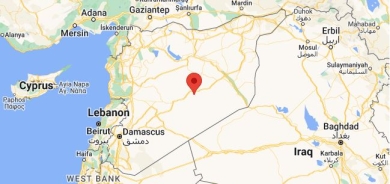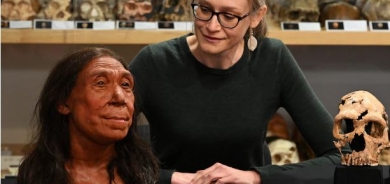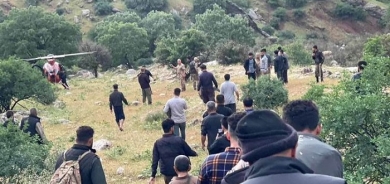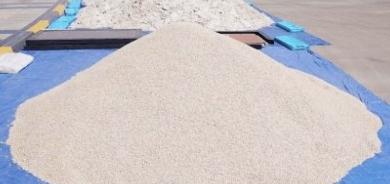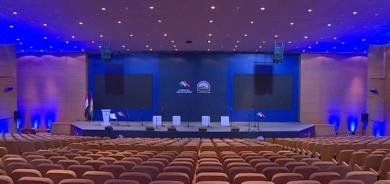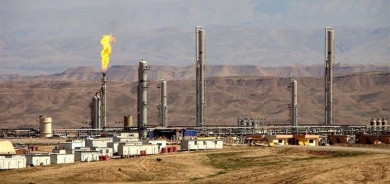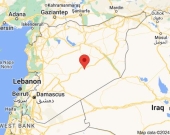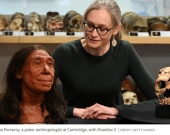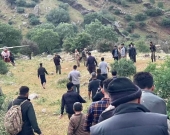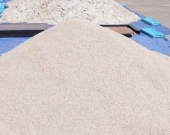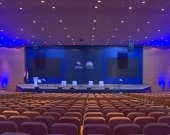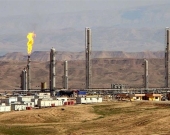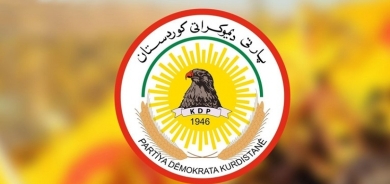Gold Finds New Popularity in Kurdish Market
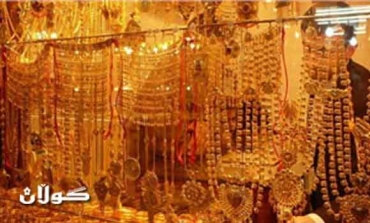
Gold is popular among Kurdish women. The common marriage alimony in this part of the world is gold.
Haval Mustafa, a goldsmith for 16 years, says, “I know women who have demanded 3 kilos of gold as alimony. Now the least amount of gold accepted as alimony is 40 grams of gold.”
Kurdistan imports its supply of gold and businessmen bring it into the country through Sulaimani and Erbil, partly because lower taxes are imposed at these two airports.
“Nowhere in the world is the tax on gold as low as in Kurdistan,” says Sayid Bakir Barzinji, a goldsmith and deputy head of the Goldmisths’ Syndicate. “At the Sulaimani and Erbil airports, they charge only 25,000 Iraqi dinars (US$20) for each kilo of gold, with an additional fee of 15,000 dinars for inspection.”
According to Barzinji, the tax at other Iraqi airports is 10 times higher.
Barzinji says Kurdistan has shifted its imports of gold from Dubai to Turkey in recent years.
“Turkish gold is enjoying good marketing in Kurdistan. Now many people in Kurdistan buy Turkish gold,” he says.
Some people believe an increase in marriage rates is the reason for the positive gold market. But Bakir Aziz, director of the Jewelry Quality Control Center in Kurdistan, says, “Only 20 percent of gold is bought for weddings; 80 percent is bought for savings. People buy gold and store it.”
In a jewelry shop in Erbil, Amina Ali, 61, was looking for Rashadi Lira, an old gold coin that has largely disappeared from the market.
“When I got married, I asked for 100 grams of gold,” she said. “Now whatever money I have I spend on gold. It’s always good to invest your money in gold. It’s a good wealth. You can always sell it back in times of need.”
According to Barzinji, who has been a goldsmith for 26 years, the income of people in Kurdistan’s different provinces determines demand for the type of gold that is sought.
“Since there are more wealthy people in Erbil and Duhok, 21-karat is more desired,” he says. “But in Sulaimani and Kirkuk, where the economy is not as good as the other provinces and because they are farther from Iran, 18-karat is more desired.”
According to statistics from the Kurdistan Syndicate of Goldsmiths, 10 kilos of gold is sold in Erbil markets every day.
“The demand for gold has reached its peak in Kurdistan,” says Barzinji. “In the past, the gold market was dependent on marriage and weddings, but now Kurdistan markets have turned international. People from other Iraqi provinces come to Kurdistan and buy gold.”
Furthermore, Kurdish businessmen monitor the world market and invest greatly in gold.
“Now Kurdish businessmen store their money in gold,” Barzinji says. “When they want to save their money, they buy gold and store it. Some of the businessmen have bought more than 100 kilos of gold.”
According to the Kurdistan Jewelry Quality Control Center, more than 55 tons of gold was imported to Kurdistan last year alone. The statistics show that 35 tons was destined for Sulaimani and the rest for Erbil and Duhok.
Aziz, director of Jewelry Quality Control, says, “Because there is no gold mining in Kurdistan, a large amount of money is paid for gold on an annual basis.”
“We bought 50,000 kilos of gold last year and that means we paid $100 million to mining companies,” he adds. “For each karat of gold, $2 is charged for the mining.”
The massive scale of gold imports seems to have raised questions from some foreign governments. Deputy head of the Kurdistan Goldsmiths Syndicate told Rudaw, “The U.S. government has asked about what happens to all the gold imported into Kurdistan. The Americans have asked, ‘What do you do to all that gold? Is it something your markets require or what?’ We explained to them that three-quarters of the imported gold ends up in other Iraqi cities.”
Aziz believes that the lack of an efficient banking system is another reason why people and businessmen purchase gold.
“In Kurdistan, we do not have a strong banking system. Therefore, people do not put their money in the bank. Instead, they buy gold and store it. This is easier for them,” he says.
According to the Jewelry Quality Control Center, there are 1,359 gold and jewelry stores in Kurdistan with 454 in Erbil, 510 in Sulaimani and 395 in Duhok.
The diamond market seems to be picking up, too. Luqman Aziz, a diamond trader, told Rudaw, “Kurdistan diamonds are imported from Dubai and Baghdad. But diamonds, unlike gold, have proven to be problematic in Kurdistan markets. Some people sell other jewelry that they call diamonds. People do not have much knowledge about diamonds. This has proved to be an issue for the diamond market.”
Aziz, himself wearing a diamond ring worth $30,000, says diamonds are slowly but surely becoming popular among newlyweds in Kurdistan.
“Some newly wedded couples feel embarrassed if they don’t buy diamond rings with their other wedding jewelry,” he says.
Rudaw

